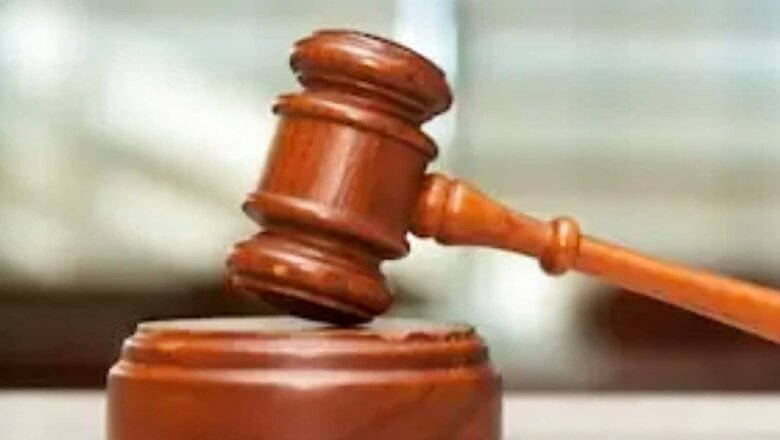
views
A recent judgment delivered by the Madras High Court ruled that displaying religious symbols (such as the holy cross) cannot be the ground to cancel a classifying Scheduled Caste certificate. The ruling has opened up a legal debate on religious identity and conversion. The debate may be contextualised within a matrix of legal classifications (built upon Constitutional provisions and Hindu law), socio-economic factors, which underlie the Indian system of affirmative action, and makers of religious identity.
What The Law Says
Officially, India’s population has been classified within several groups, including the Scheduled Castes (SCs), Scheduled Tribes (STs), Other Backward Classes (OBC), and the General category. Article 366 of the Constitution of India defines the SC category that includes castes, races, tribes, or parts/ groups within castes, races, or tribes as notified. Article 341 of the Constitution empowers the President of India to specify these groups as SCs in relation to a state or Union Territory through a public notification. The Constitution (Scheduled Castes) Order, 1950 was passed in adherence with the provision. To amend such a notification and include or exclude a group, a law must be passed by Parliament. A 1956 amendment to the said order specified that individuals professing religions other than Hinduism or Sikhism may not claim to be members of an SC group.
However, the legal definition of a Hindu is also built upon Hindu law which includes the Hindu Marriage Act, 1955; and the Hindu Adoptions and Maintenance Act, Hindu Succession Act, and Hindu Minority and Guardianship Act of 1956. A Hindu by religion in any of its form or development includes individuals from the Buddhist and Jain communities, besides the Sikh communities, alongside other persons not professed to be Muslims, Christians, or Parsis. Such persons are governed under the Hindu law.
In 1985, a three-judge Bench of the Supreme Court headed by then Chief Justice of India, PN Bhagwati held that individuals practicing religions other than Hinduism or Sikhism may not claim constitutional benefits for SCs. The Bench noted that the caste system is a phenomenon unique to the Hindu social structure and also reaffirmed the legal provisions codified in the 1956 order. Former Union Law Minister Ravi Shankar Prasad in reply to a Parliamentary question in 2020 had stated that no person professing religions other than Hinduism, Sikhism, or Buddhism may be deemed to be members of an SC.
Contextualising Religious Identity for SCs
In case of conversion and re-conversation, three instances must be considered with respect to SCs. First, if a member of an SC converts to a religion other than Hinduism, Sikhism, or Buddhism, they cease to be a member of the SC and avail benefits of affirmative action. However, they may be recognised as members of an OBC, which has been seen in categorisations by several states. Second, if such an individual converts back to Hinduism, Sikhism, or Buddhism, they may be deemed to have reverted to their original SC, based on acceptance by members of that caste. Third, in case of descendants of SC converts, they must be accepted by members of the specified SC to establish membership and claim benefits of affirmative action.
A 2008 report by the National Commission of Minorities on ‘Dalits in the Muslim and Christian Communities’ highlighted the socio-economic evidence of discrimination faced by Dalit Muslims and Christians. Built on this, the report stated that there was a strong case to include such communities in the SC categories.
The issue of quota benefits for Dalit Christians is currently under consideration by the Supreme Court in a matter filed by the National Council of Dalit Christians. The Council had demanded that reservations for government jobs and seats in educational institutions must be made religion neutral to ensure that Christians of SC origin may avail benefits of affirmative action. Former Chief Justice of India SA Bobde had issued notice in 2020 in this matter.
Practicing, Expressing, Changing Religious Identity
Article 25 of the Indian Constitution recognises the fundamental right to profess, practice and propagate religion, and also emphasises on the equality of all religions before the law. Article 26 gives effect to the right and freedom to manage religious affairs (with restrictions based on public order, morality, and health). Articles 25 and 26 extend to rituals and are not confined to the abstractions of doctrine. This was reiterated in the 1954 Shirur Mutt case by the Supreme Court which recognised that religion was a matter of faith and not necessarily theistic. Professing religion is usually a public declaration of religious identity. Practice here can be understood as religious worshiping and observing of rituals. Propagating connotes the right of individuals to communicate their religious beliefs by expounding tenets of their beliefs.
Article 18 of the Universal Declaration of Human Rights specified that freedom of religion also includes a freedom to change one’s religion or practice. Thus, rights enshrined under articles 25 and 26 empowering individuals to profess religion also translate to a freedom to change religious identity. While individuals have the right to propagate their religious ideals, in the 1977 case of Rev. Stainislaus v. State of Madhya Pradesh, the Supreme Court observed that this cannot be seen a right to convert individuals using pressure or forced inducement.
The idea has been codified by several states including Gujarat, Madhya Pradesh, Himachal Pradesh and Arunachal Pradesh, which have enacted Freedom of Religion Acts. These Acts prohibit forcible conversion, which has been defined as conversion using force, allurement, and fraudulent means. Further, individuals converting from one religious’ faith to another must send an intimation to the District Magistrate within a stipulated period. Under several state legislations, a failure to do this is recognised as an offence.
Beyond this, conversion from one religion to another has socio-legal consequences affecting succession, marital status, and the right to seek elective office. Thus, if an individual decides to change their religion, a legal process must be adhered with to ensure that the change is reflected in government documents and proofs of identification.
In 1971, the Supreme Court recognised the importance of upholding a legal process for conversion in Perumal Nadar v. Ponnuswami case. It stated that a “theoretical allegiance” or “bare declaration” of becoming a Hindu is insufficient. However, a “bona-fide intention” accompanied by evidence of conversion may “effectuate conversion”.
The issue was further examined by the Law Commission of India headed by Justice P.V. Reddi in a 2010 report based on a reference made by the Kerala High Court. The Commission made note of a report by the Kerala Law Academy on the “Statutory vacuum for effectuating voluntary religious conversion” which had stressed on the need to legislatively prescribe a simple procedure to effectuate conversion. The Law Commission recommended against enacting a special legislation for the purpose of conversion. However, the commission formulated a procedure to declare and register conversion with an officer in-charge of registering marriages and recommended that the Central government may exercise its executive power to issue appropriate instructions to the states and Union Territories giving effect to the said procedure.
The inaction by the Central government is the leading cause of this inflammable controversy. At the risk of sounding trite, the government should consider the recommendations of the Law Commission and settle disputes.
The author is a columnist and advocate. He can be followed @viraggupta. The views expressed in this article are those of the author and do not represent the stand of this publication.
Read all the Latest News , Breaking News and IPL 2022 Live Updates here.



















Comments
0 comment